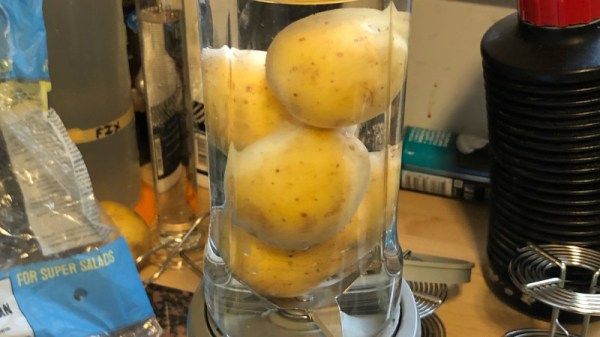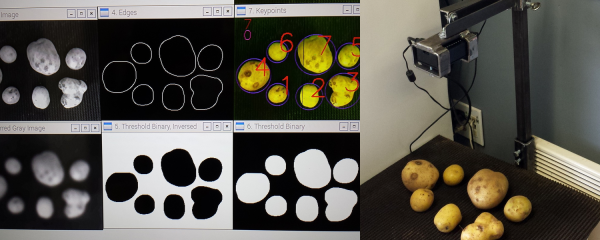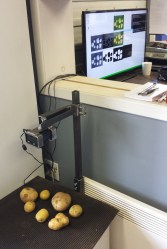If film photography’s your thing, the chances are you may have developed a roll or two yourself, and if you’ve read around on the subject it’s likely you’ll have read about using coffee, beer, or vegetable extracts as developer. There’s a new one to us though, from [cm.kelsall], who has put the tater in the darkroom, by making a working developer with potatoes as the active ingredient.
The recipe follows a fairly standard one, with the plant extract joined by some washing soda and vitamin C. The spuds are liquidised and something of a watery smoothie produced, which is filtered and diluted for the final product. It’s evidently not the strongest of developers though, because at 20 Celcius it’s left for two hours to gain an acceptable result.
The chemistry behind these developers usually comes from naturally occurring phenols in the plant, with the effectiveness varying with their concentration. They’re supposed to be better for the environment than synthetic developers, but sadly those credentails are let down somewhat by there not being a similar green replacement for the fixer, and the matter of a load of silver ions in the resulting solutions. Still, it’s interesting to know that spuds could be used this way, and it’s something we might even try ourselves one day.
We’ve even had a look at the coffee process before.













